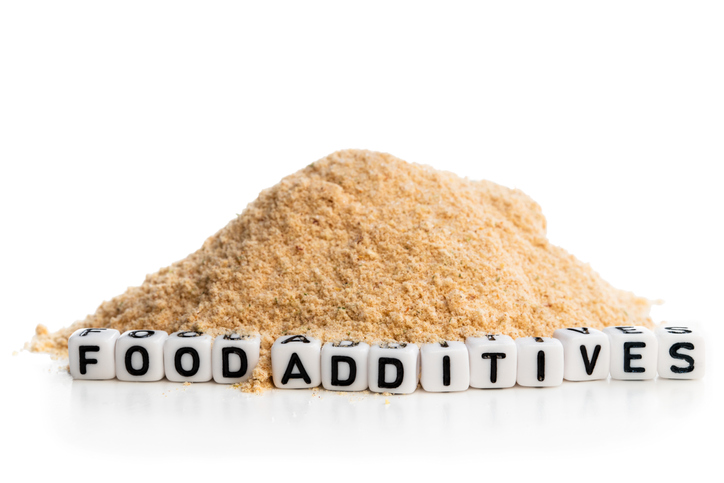Why California is Trying to Ban These 5 Food Additives

By Joy Stephenson-Laws, JD, Founder
I’m always stressing the importance of knowing what is in the foods we eat. When buying packaged products, I advise reading the label - down to the very last word. My suggestion is to put the product back on the shelf if there is an ingredient you do not recognize or perhaps have difficulty pronouncing. I usually suggest staying away from packaged and processed foods, which tend to live in the center aisles of the grocery store, and stick to the perimeter of the grocery store which is where you will usually find the fresh fruits and vegetables. If I buy a few sweet potatoes or a crate of blueberries, I know exactly what I am getting - sweet potatoes and blueberries! I don’t have to worry about mysterious chemicals or additives (especially when buying organic).
To give more perspective regarding how important it is to be an informed consumer, I recently came across an article that discusses a bill in California which aims to ban five food chemicals that are already banned in Europe.

Assembly Bill 418 wants to ban the following:
- Brominated vegetable oil.
Also called BVO for short, brominated vegetable oil is a food additive that has been used in many sodas and citrus-flavored drinks. BVO helps prevent flavors from separating.
“Brominated compounds have been linked to numerous health hazards, including harm to the nervous system. BVO can build up in the body, and research has shown a connection between drinking large amounts of BVO-containing sodas over a long period and problems such as headaches, irritation of the skin and mucous membranes, fatigue and loss of muscle coordination and memory,” according to the Environmental Working Group (EWG).
“The risks of BVO have been known for decades. A 1980s study showed that rats that consumed BVO up to 2 percent of their diet showed significant reproductive harm. An even earlier study showed that rats that consumed diets containing brominated corn, cottonseed, olive or sesame oil showed changes to the heart and liver. And in one instance, a man who consumed eight liters of Ruby Red Squirt daily for several months developed tender nodules on his hands and fingers.”
This 2014 USA Today article discusses how both Coca-Cola and PepsiCo said they are working to remove BVO from all of their products. If you have had, however, a soda habit long before this, wouldn’t it have been nice to know that there was a chemical in your beverage banned in other parts of the world?
- Potassium bromate.
Not to be confused with just plain potassium, an essential mineral that works with sodium to balance the fluid and electrolytes in the body. Potassium also helps keep blood pressure under control and may help reduce kidney stones and bone loss as we age. Potassium may even reduce our risk of stroke.
Potassium bromate (KBrO3), however, is an oxidizing agent commonly used in bread-making. This additive is found in many processed white breads and baked goods.
“Although adverse effects are not evident in animals fed bread-based diets made from flour treated with KBrO3, the agent is carcinogenic in rats and nephrotoxic in both man and experimental animals when given orally,” according to the National Institutes of Health (NIH).
- Propylparaben.
This chemical is part of the paraben family. It is known to mimic estrogen and, therefore, may be an endocrine disruptor. We usually think of parabens only being in cosmetics, but click here to see packaged foods that may contain propylparaben.
- Red dye no. 3.
“It’s illegal to use the carcinogenic color additive Red 3 in cosmetics, such as lipsticks or blush, or externally applied drugs. Yet the discredited chemical is lurking in common varieties of candy corn, Nerds, Peeps, Pez, SweeTarts, and hundreds of candies, cakes, and other foods, including dozens of seasonal Halloween items,” according to the Center for Science in the Public Interest.
This is pretty shocking, to say the least. Especially when you think about how our children are consuming these products.
- Titanium dioxide.
I have previously blogged about titanium dioxide. It is found in many commercial sunscreens. When applied to the skin, titanium dioxide (and zinc oxide) forms a physical barrier for blocking harmful rays from the sun. Many processed foods such as gum, coffee creamers, pastries and other candies besides Skittles do, in fact, contain titanium dioxide.
You do not have to wait to ban these additives from your diet.It still remains to be seen if these ingredients will be banned in California or the U.S. as a whole for that matter, but that does not mean you cannot ban them from your diet right now. You can read more about Assembly Bill 418 here.
I think the biggest takeaway from all of this is that food should not be complicated. Our ancestors did not eat foods with dyes and other chemicals. Keeping it simple and natural is definitely one of the best ways to be proactive about overall health and wellness. Stick to nutrient-dense fruits and vegetables and lean proteins if you are a meat-eater. Fish can also be a good source of protein, but it is also extremely important to be informed about what you are consuming.
In addition to maintaining a natural, unprocessed foods diet, it is always good to take routine nutrient tests. You want to identify any nutrient imbalances or deficiencies. Even if you already follow a healthy, nutrient-rich diet, it is still possible to be deficient or imbalanced due to age, absorption issues from underlying conditions and even genetic mutations.
If the test determines you are not nutritionally balanced, a competent healthcare professional can work with you on making the necessary dietary changes and recommend quality supplements if necessary.
Enjoy your healthy life!
Disclaimer: This article is not intended to provide medical advice. Please consult with your doctor or another competent healthcare practitioner to get specific medical advice for your situation.
The pH professional health care team includes recognized experts from a variety of health care and related disciplines, including physicians, attorneys, nutritionists, nurses, and certified fitness instructors. This team also includes the members of the pH Medical Advisory Board, which constantly monitors all pH programs, products, and services. To learn more about the pH Medical Advisory Board, click here.







